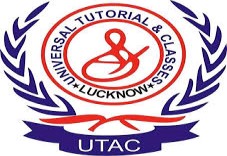Candidates who are are preparing for SSC (Staff Selection Commission) and other Competitive Recruitment will likely need to solve a section of English. This section will consist of one-word substitutions. The whole idea behind asking one word-substitution is because ‘one word’ can often express the idea of a phrase or a clause. Not only does it helps in accurately expressing your feelings and ideas but also helps in writing or communicating precisely the idea or a thought.
Here is a list of some common one-word substitutions that are often being asked in the previous exams, and could be repeated this year:
1. Audience – a number of people listening to a lecture.
2. Altruist – one, who considers the happiness and well-being of others first
3. Atheist – a person who does not believe in God
4. Anthropologist – one, who studies the evolution of mankind
5. Autocracy – government by one person
6. Autobiography – the life history of a person written by himself
7. Amputate – to cut off a part of a person’s body which is infected
8. Arsenal – a place for ammunition and weapons
9. Archives – a place where government or public records are kept
10. Amateur – a man who does a thing for pleasure and not as a profession
11. Aristocracy – government by the nobles
12. Aquatic – animals/plants ere which live in water
13. Amphibian – animals which live both on land and sea
14. Ambidexter – one, who can use either hand with ease
15. Alimony – allowance paid to wife on legal separation
16. Anthology – a collection of poems
17. Abdication – voluntary giving up of the throne in favor of someone
18. Arbitrator – a person, appointed by two parties to solve a dispute
19. Astronomer – a person, who studies stars, planets and other heavenly bodies
20. Astrologer – a person who studies the influence of heavenly bodies on human beings
21. Anthology – a collection of poems
22. Axiom – a statement which is accepted as true without proof
23. Agenda – a list of headings of the business to be transacted at a meeting
24. Anarchist – one, who is out to destroy all governance, law, and order
25. Almanac – an annual calendar with positions of stars
26. Bigamy – the practice of having two wives or husbands at a time
27. Bibliophile – a lover and collector of books
28. Bouquet – a collection of flowers
29. Bureaucracy – government by the officials
30. Belligerent – a person, nation that is involved in the war
31. Biennial – an event which happens once in two years
32. Blasphemy – the act of speaking disrespectfully about sacred things
33. Creche – a nursery where children are cared for while their parents are at work
34. Cosmopolitan – a person who regards the whole world as his country
35. Chauffeur – one, who is employed to drive a motor car
36. Curator – a person in charge of a museum
37. Carnivorous – one, who lives on flesh
38. Cannibal – one, who feeds on human flesh
39. Contemporaries – belonging to or living at the same time
40. Cloakroom – a place for luggage at the railway station
41. Cynosure – the centre of attraction
42. Connoisseur – a critical judge of any art and craft
43. Crusade – a religious war
44. Choreographer – one, who teaches dancing
45. Cacographist – a person, who is bad in spellings
46. Calligraphist – a person, who writes beautiful handwriting
47. Cynic – one, who sneers at the aims and beliefs of his fellow men
48. Convalescent – one, who is recovering health
49. Cavalry – soldiers, who fight on horseback
50. Cardiologist – a person, who is specialist in heart diseases
51. Cartographer – one, who draws maps
52. Dormitory – the sleeping rooms with several beds especially in a college or institution
53. Drawn – a game that results neither in victory nor in defeat
54. Elegy – a poem of lamentation
55. Epitaph – words which are inscribed on the grave or the tomb in the memory of the buried
56. Ephemeral – lasting one day
57. Effeminate – a person who is womanish
58. Emigrant – a person who leaves his own country and goes to live in another
59. Edible – fit to be eaten
60. Egotism – practice of talking too much about oneself
61. Encyclopedia – a book that contains information on various subjects
62. Epicure – one, who is devoted to the pleasure of eating and drinking
63. Florist – one, who deals in flowers
64. Fastidious – one, who is very -selective in one’s taste
65. Fanatic or Bigot – one, who is filled with excessive and mistaken enthusiasm in religious matters
66. Fatal – causing death
67. Fatalist – one, who believes in fate
68. Facsimile – an exact copy of handwriting, printing etc.
69. Fauna – the animals of a certain region
70. Flora – the plants of a particular region
71. Fratricide – murder of brother
72. Fugitive – one, who runs away from justice or the law
73. Fragile – easily broken
74. Feminist – one, who works for the welfare of the women
75. Granary – a place for grains
76. Genocide – murder of race
77. Gregarious – animals which live in flocks
78. Hangar – a place for housing aeroplanes
79. Hive – a place for bees
80. Horticulture – the art of cultivating and managing gardens
81. Homicide – murder of man
82. Hearse – a vehicle which is used to carry a dead body
83. Hedonist – one, who believes that pleasure is the chief good (sensual)
84. Horizon – a line at which the earth and the sky seem to meet
85. Honorary – holding office without any remuneration
86. Heretic – one, who acts against religion
87. Herbivorous – one, who lives on herbs
88. Insolvent/Bankrupt – a person who is unable to pay his debts
89. Inaudible – a sound that cannot be heard
90. Inaccessible – that cannot be easily approached
91. Incorrigible – incapable of being corrected
92. Irreparable – incapable of being repaired
93. Illegible – incapable of being read
94. Inevitable – incapable of being avoided
95. Impracticable – incapable of being practised
96. Immigrant – a person who comes to one country from another in order to settle there
97. Invincible – one, too strong to be overcome
98. Indelible – that cannot be erased
99. Incognito – travelling under another name than one’s own
100. Indefatigable – one, who does not tire easily
101. Infallible – one, who is free from all mistakes and failures
102. Invigilator – one, who supervises in the examination hall
103. Itinerant – one, who journeys from place to place
104. Infirmary – a home or room used for ill or injured people
105. Infanticide – murder of an infant
106. Infantry – soldiers, who fight on foot
107. Inflammable – liable to catch fire easily
108. Interregnum – a period of interval between two reigns or governments
109. Kennel – a place for dogs
110. Lunatic asylum – a home for lunatics
111. Lexicographer – one, who compiles a dictionary
112. Loquacious – one, who talks continuously
113. Linguist – one, who is skilled in foreign languages
114. Lapidist – one, who cuts precious stones
115. Misanthrope – a hater of mankind
116. Misogamist – one, who hates marriage
117. Mortuary – a place, where dead bodies are kept for post-mortem
118. Mercenary – working only for the sake of money
119. Matricide – murder of mother
120. Martyr – one, who dies for a noble cause
121. Maiden speech – the first speech delivered by a person
122. Mint – a place where coins are made
123. Misogynist – a hater of womankind
124. Morgue – a place, where dead bodies are kept for identification
125. Mammals – animals which give milk
126. Monogamy – the practice of marrying one at a time
127. Missionary – a person, who is sent to propagate religion
128. Numismatics – the study of coins
129. Namesake – a person having same name as another
130. Nostalgia – a strong desire to return home, homesickness
131. Novice or Tyro – one, new to anything, inexperienced
132. Narcotic – a medicine for producing sleep
133. Optimist – a person who looks at the brighter side of things
134. Orphan – one, who has lost parents
135. Omnipresent – one, who is present everywhere
136. Omnipotent – one, who is all powerful
137. Omniscient – one, who knows everything
138. Opaque – that which cannot be seen through
139. Obituary – an account in the newspaper of the funeral of the one deceased
140. Orphanage – a home for orphans
141. Obstetrician – one, who is skilled in midwifery
142. Ostler – one, who looks after horses at an inn
143. Omnivorous – one, who eats everything
144. Pessimist – a person who looks at the darker side of things
145. Potable – fit to drink
146. Post-mortem – an examination of dead body
147. Philanthropist – a lover of mankind
148. Patricide – murder of father
149. Philatelist – one, who collects stamps
150. Plagiarism – literary theft or passing off an author’s original work as one’s own
151. Polygamy – the practice of marrying more than one wife at a time
152. Polyandry – the practice of marrying more than one husband at a time
153. Philogynist – a lover of womankind
154. Plebiscite – (a decision made by) votes of all qualified citizens
155. Philanderer – one, who amuses himself by love making
156. Philistine – one who does not care for art and literature
157. Plutocracy – government by the rich
158. Pseudonym – an imaginary name assumed by an author for disguise
159. Posthumous – a child born after the death of his father or the book published after the death of the writer
160. Panacea – a remedy for all diseases
161. Pediatrician – a person, who is specialist in child diseases
162. Platitude – ordinary remarks often repeated
163. Pedant – one, who makes a vain display of his knowledge
164. Polyglot – one, who speaks many languages
165. Paleography – the study of ancient writing
166. Posse – a number of policemen called to quell a riot
167. Parole – pledge given by a prisoner for temporary release, not to escape
168. Pedestrian – one, who goes on foot
169. Portable – that can be carried easily
170. Quarantine – an act of separation from other persons to avoid infection
171. Rhetoric – the art of elegant speech or writing
172. Regicide – murder of King or Queen
173. Sacrilege – violating or profaning religious things/places
174. Sculptor – one, who cuts in stones
175. Suicide – murder of oneself
176. Stable – a place for horses
177. Somnambulist – a person, who walks in sleep
178. Somniloquist – a person, who talks in sleep
179. Souvenir – a thing kept as a reminder of a person, place or event
180. Swan song – the last work (literary) of a writer
181. Sot, Toper – one, who is a habitual drunkard
182. Sinecure – a job with high salary but little responsibility
183. Stoic – a person, who is indifferent to pleasure and pain and has control over his passions
184. Sanatorium – a place for the sick to recover health
185. Sororicide – murder of sister
186. Triennial – an event which happens once in three years
187. Truant – a person/student who absents himself from class or duty without permission
188. Teetotaller – one, who does not take any intoxicating drink
189. Transparent – that which can be seen through
190. Theocracy – government by religious principles
191. Uxorious – one extremely fond of one’s wife
192. Utopia – an imaginary perfect social and political system
193. Uxoricide – murder of wife
194. Verbatim – repetition of speech or writing word for word
195. Volunteer – one, who offers one’s services
196. Virgin – a woman who has no sexual experience
197. Versatile – interested in and clever at many different things
198. Veteran – one, who has a long experience of any occupation
199. Venial – a fault that may be forgiven
Learning one-words in an easy manner without much effort
The easiest and the most effective way of learning one words is by means of association. It is the process by which new, incoming information is connected to old or preexisting information. One piece of information could have thousands of associations to memories, emotions, sensory experiences, and discrete facts. Our mind does this naturally, but we can also take conscious control of the process. Let’s consider the words: Parsimonious, Magnate, Cherish.
You can contain all the words in one single sentence, by associating it with a friend. Let’s assume he is a miser and his name is Rohan.
Here is the final sentence: ‘Rohan, who parsimonious, cherish a desire to be a business magnate.’
You Might Want To Read:
Icai Mock Test Paper 16 2, Mat Sample Paper Class 8Th, Ugc Net Performing Art Dance Drama Theatre Syllabus 2017 Code 65, Continuity Derivability, Sbi Po Question Paper With Solutions 2015, Shri Ram College Of Commerce Srcc Practice Paper, Andhra Pradesh Public Service Commission Mock Test Paper 1, Class 12 Sanskrit Elective Question Paper 2 2015, Syntel Free Test, Mathematics Question Paper 4










Like what you read? Give author a thumbs up?
Bookmark this article to read later, drop a remark in comment section and share with your friends..